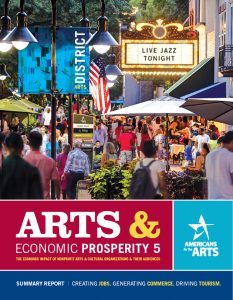A DNREC Community Water Quality Improvement Grant helped fund construction of Tidewater Park in Laurel /DNREC photo.
Deadline for Submissions for Upcoming Grant Cycle is April 26
The Delaware Department of Natural Resources and Environmental Control encourages Delaware non-profit organizations, conservation districts, community organizations and homeowners’ associations to submit project proposals to be considered for matching grant funds from DNREC’s Community Water Quality Improvement Grants program.
Funding for grant award projects in this cycle is expected to range from $25,000 to $75,000. Projects recommended by DNREC staff for funding through a competitive grant process will be presented to the Delaware Water Infrastructure Advisory Council. Applicants may submit up to two project proposals per grant cycle. The request for proposals can be found at de.gov/envfinance.
Community Water Quality Improvement Grants assist in implementing projects or programs that improve water quality on developed lands with specific watershed improvement plans and strategies. Programs and projects selected for these grants must demonstrate innovative and sustainable methods, techniques, and/or practices for water quality improvements, with cost effective and measurable results.
Eligible projects may include:
- Enhancement or restoration of water quality within an impaired watershed.
- Community stormwater management improvements in existing developments in partnership with municipalities.
- Non‐regulatory or voluntary plans involving pollution control strategies, watershed-based restoration plans, whole basin management preliminary assessments, or community‐based stormwater permits.
Past projects that received Community Water Quality Improvement Grant funding have included: a green roof installation; living shoreline installation and marsh enhancement to stop erosion; a stormwater retrofit project featuring a wetland and bioswale to manage stormwater runoff from impervious surfaces; stream bank restoration to reduce erosion and sedimentation; and floating wetlands in Inland Bays dead-end canals to improve water quality.
Grant proposals should be submitted by email to NPS.grants@delaware.gov with “Community Water Quality Improvement Grants” in the subject line. Emailed proposals must be less than 10MB. All grant proposals must be received by DNREC close of business (4:30 p.m. EDT) Wednesday, April 26, 2023.
About DNREC
The Delaware Department of Natural Resources and Environmental Control protects and manages the state’s natural resources, protects public health, provides outdoor recreational opportunities and educates Delawareans about the environment. The DNREC Environmental Finance team administers Delaware’s Clean Water State Revolving Fund, making funding available to municipalities, the private sector, nonprofit organizations and individuals. The DNREC Division of Watershed Stewardship develops and implements innovative watershed assessment, monitoring and implementation activities. For more information, visit the website and connect with @DelawareDNREC on Facebook, Instagram, Twitter or LinkedIn.
Media contact: Michael Globetti, michael.globetti@delaware.gov
###


 WASHINGTON (June 22, 2017) — Delaware’s arts and culture industry generates $149.9 million in annual economic activity by supporting 4,062 full-time equivalent jobs and generating $10.5 million in local and state government revenues, according to the latest Arts & Economic Prosperity 5 national economic impact study, which was released on June 17 at the Americans for the Arts’ annual conference in San Francisco.
WASHINGTON (June 22, 2017) — Delaware’s arts and culture industry generates $149.9 million in annual economic activity by supporting 4,062 full-time equivalent jobs and generating $10.5 million in local and state government revenues, according to the latest Arts & Economic Prosperity 5 national economic impact study, which was released on June 17 at the Americans for the Arts’ annual conference in San Francisco.